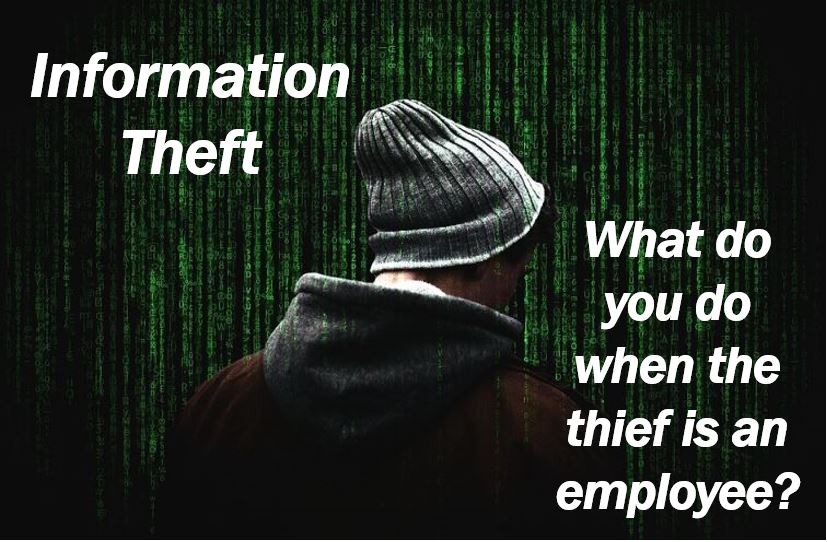Over 80% of business information, which is often sensitive, is stored digitally. Businesses now rely heavily on software and solutions designed to make maintaining smooth operations easy. But that dependency has its risks. There is a growing number of cyberattacks threatening businesses around the world.
 As more parts of a business get stored digitally, the risk of information theft becomes higher. And the risk of internal theft is just as important to mitigate as the risk of cyberattacks. Preventing employees from stealing information must be part of security policies.
As more parts of a business get stored digitally, the risk of information theft becomes higher. And the risk of internal theft is just as important to mitigate as the risk of cyberattacks. Preventing employees from stealing information must be part of security policies.
What if an employee steals sensitive business information? What steps do you need to take in the event of information theft?
Containing the Leak
Like dealing with other information security incidents, the first thing you want to do is take steps to prevent further leaks. In the case of information theft by an employee, you need to identify the source of the leak.
This is where digital forensics come in handy. Digital forensics experts and service providers can help you mitigate the issue quickly. For example, Secure Forensics is experienced in infidelity digital investigation, corporate espionage, and other cases.
With the help of digital forensic tools, an expert can scan your network of computers and process the collected information to pinpoint the source of the leak. Once the exact terminal is identified, you can take steps to prevent more information from being shared with unauthorized parties.
Enforcing Security Policies
The most challenging part of dealing with corporate espionage and information theft is enforcing existing security policies. Thanks to digital forensics, proving that an employee did steal sensitive business information is easier than ever.
The next step is making sure that said employee gets punished for stealing business information. Depending on how well-defined your security policies are, this may be a lengthy process that involves legal battles and other proceedings.
That said, there are regulations governing the management of sensitive information. When an employee shares details about your company’s customers, for instance, that employee can be charged criminally for violating business and privacy laws.
 Preventing Future Leaks
Preventing Future Leaks
A part of dealing with information leaks or theft is preventing a similar case from happening again. The last thing you want is for sensitive business information to fall into the wrong hands, such as those of your competitors, because internal security policies and measures are not tight enough.
Detailed logging, meticulous access management, and other security policies make digital forensics easier to perform. At the same time, these security measures also help prevent leaks from severely affecting the business.
Some companies even go as far as preventing the copying of sensitive business files to an external drive. If you find advanced measures like this to be necessary, there are security tools that can help you implement company-wide restrictions from a central point.
The rest is about maintaining good information security awareness among employees. Information security is the responsibility of everyone in the company. When you actively get employees involved in the process, the risk of information theft can be reduced to a minimum.
Video – Cyber Security
______________________________
Interesting related articles:

